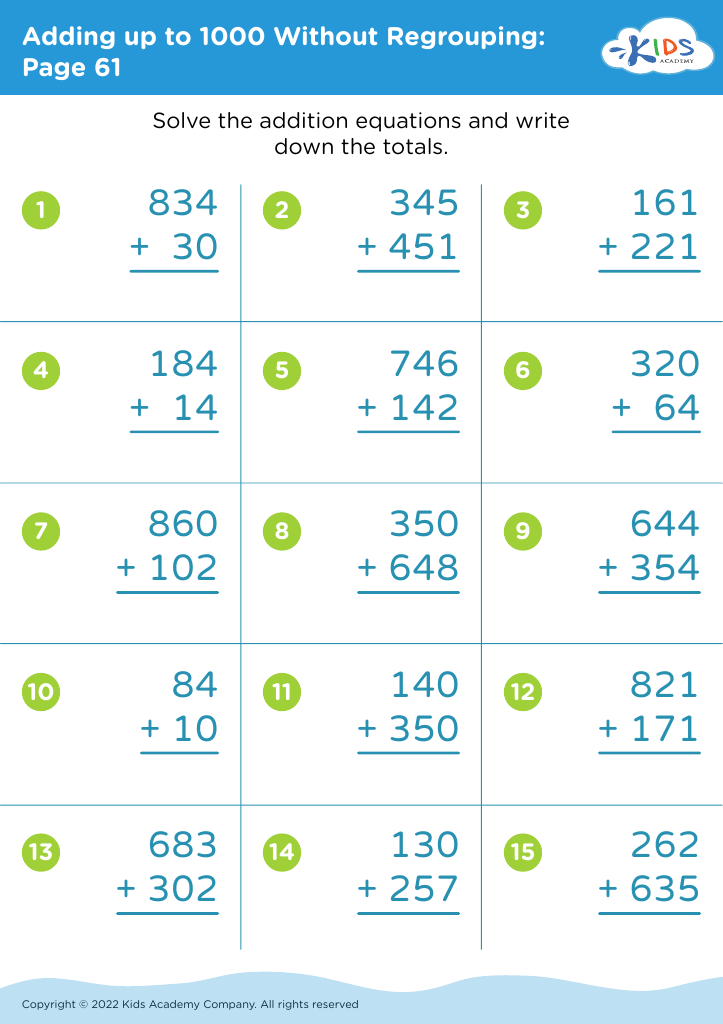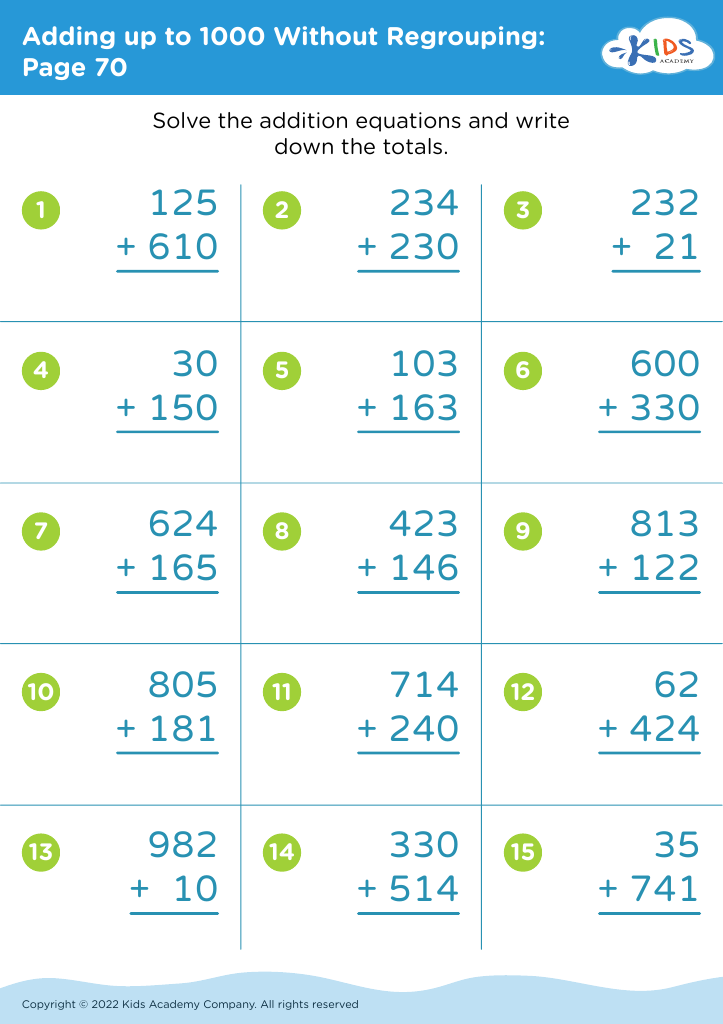Basic Addition Adding up to 1000 Without Regrouping Worksheets for Ages 8-9
4 filtered results
-
From - To
Our "Basic Addition: Adding Up to 1000 Without Regrouping Worksheets" are designed specifically for children aged 8 to 9, offering a fun and engaging way to master fundamental addition skills. These printable worksheets focus on adding numbers without regrouping, enabling young learners to build confidence and fluency in their math abilities. With a variety of exercises and colorful illustrations, kids can practice adding two or three-digit numbers, reinforcing their understanding of addition through repetition and real-life scenarios. Perfect for classroom use, homework, or extra practice at home, these worksheets will help your child excel in mathematics and foster a lifelong love for learning!
Parents and teachers should prioritize basic addition skills, especially adding up to 1000 without regrouping, for children ages 8-9 for several reasons. At this developmental stage, children are building a foundation for more complex mathematical concepts. Mastery of addition without regrouping boosts their confidence and encourages positive attitudes toward math.
Understanding how to add larger numbers cultivates problem-solving skills and logical thinking, essential tools for academic success in various subjects. It also aids in developing future competencies like multiplication, division, and fractions. When children can easily add larger numbers, they are better equipped to handle real-life scenarios involving budgeting, shopping, and measuring.
Moreover, practicing addition improves their attention to detail, as ensuring accuracy in calculations requires focus. Regular engagement with these skills can also enhance memory and retention as children learn to recognize patterns and relationships in numbers. Lastly, strong math skills can positively impact self-esteem, particularly for early learners who might feel pressured in a competitive academic environment. By fostering a solid understanding of basic addition, parents and teachers create a supportive environment for children to thrive mathematically, paving the way for lifelong learning and success.














